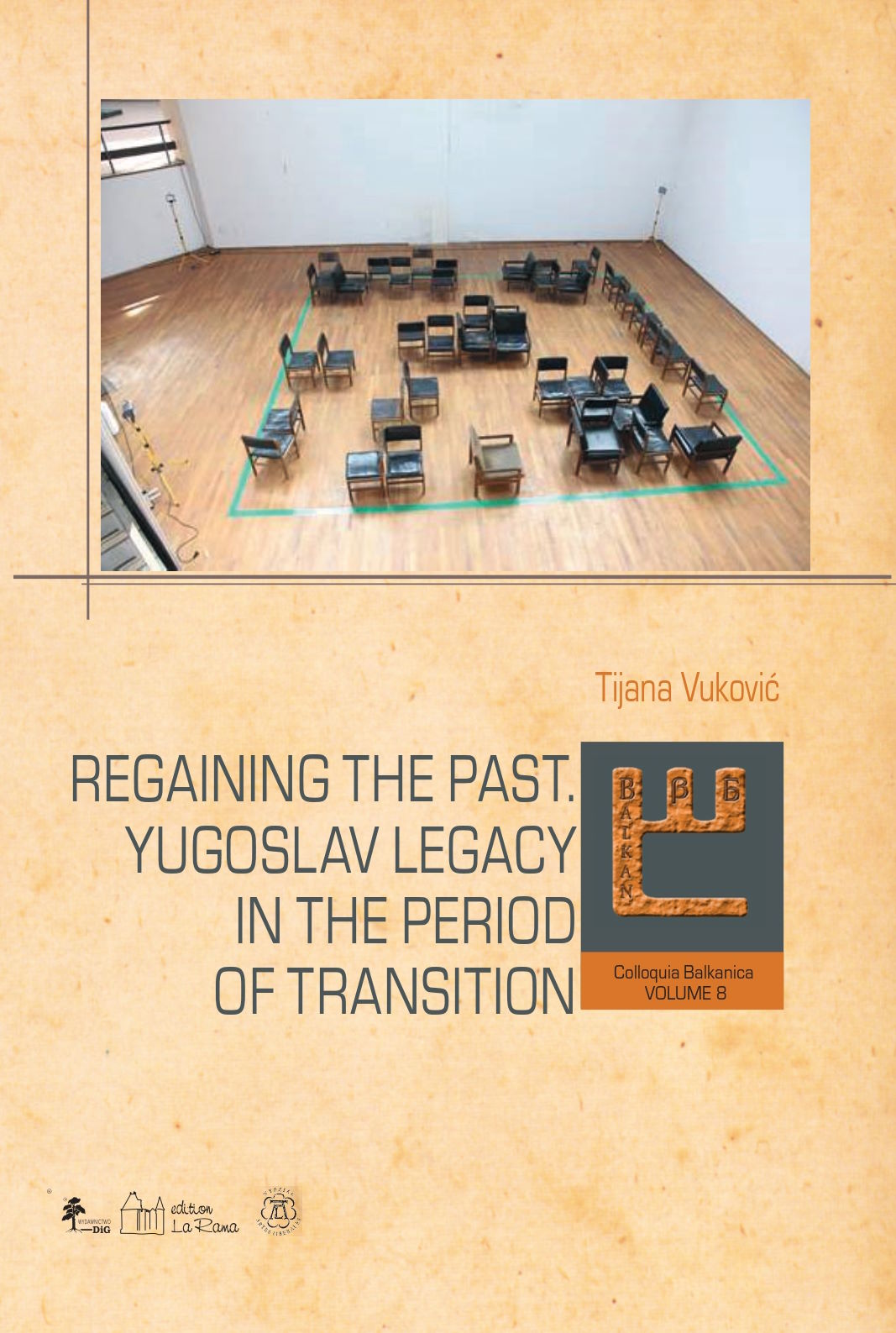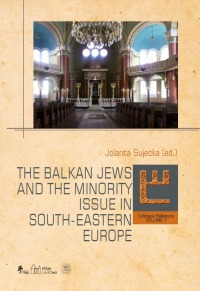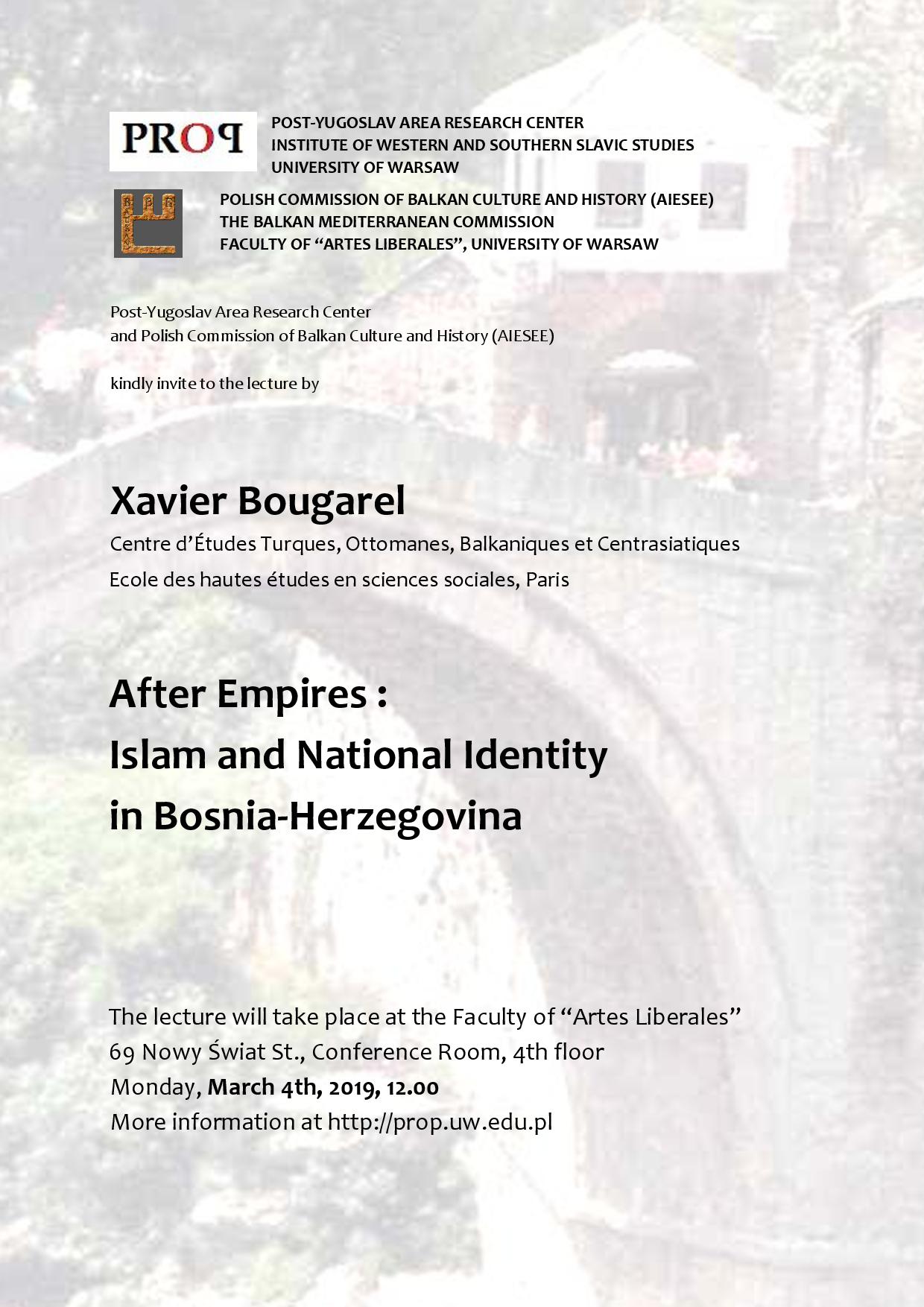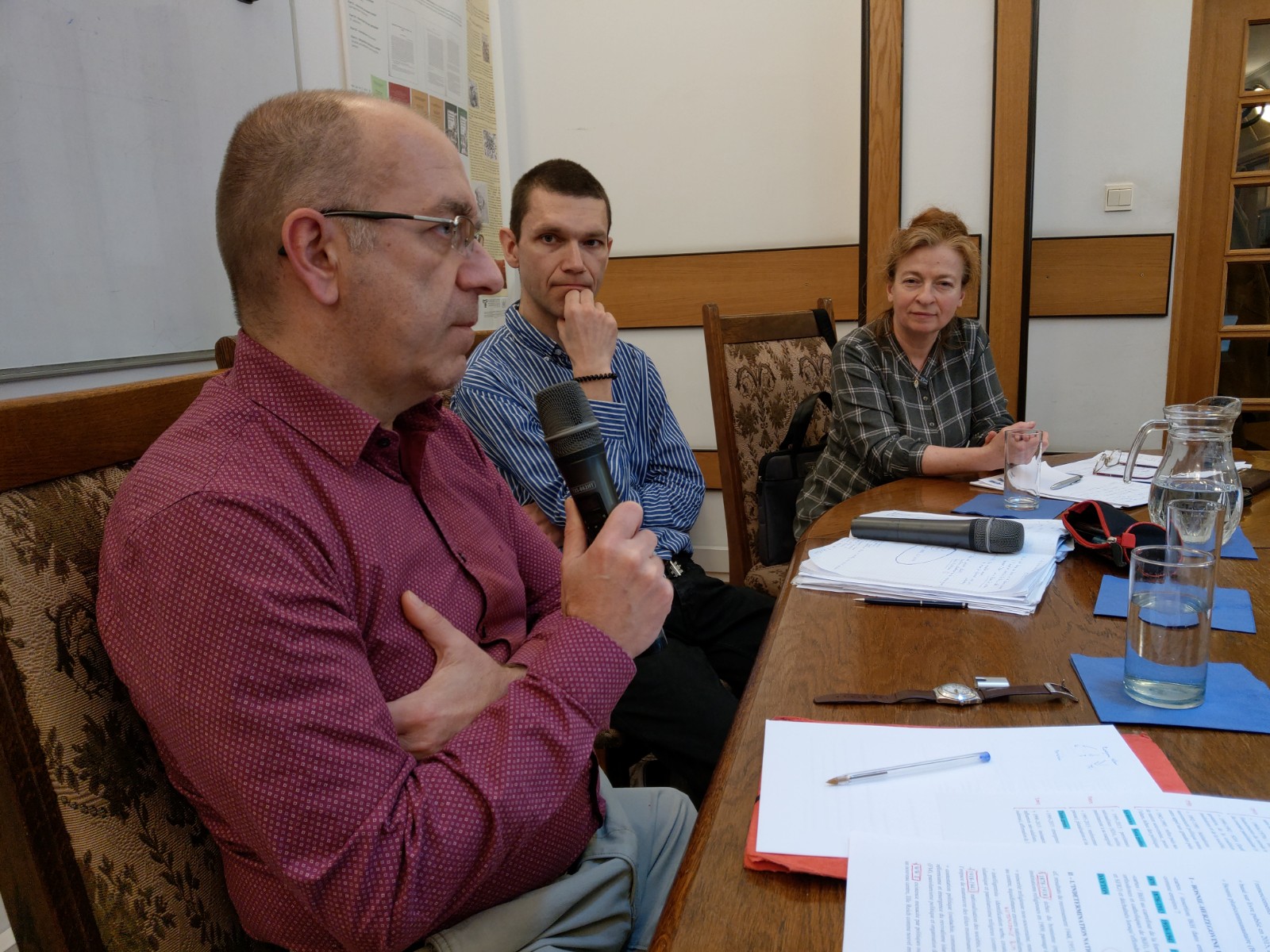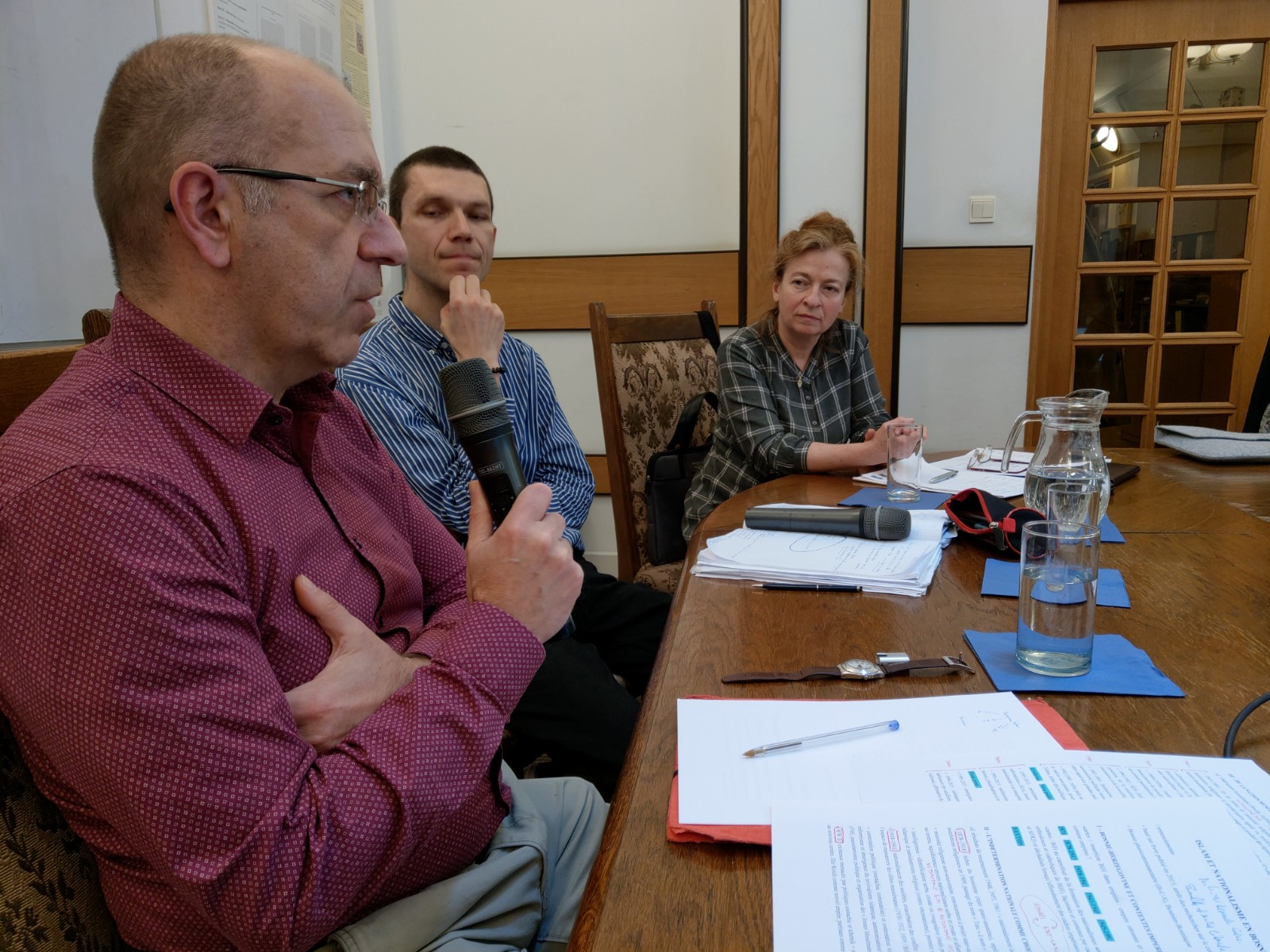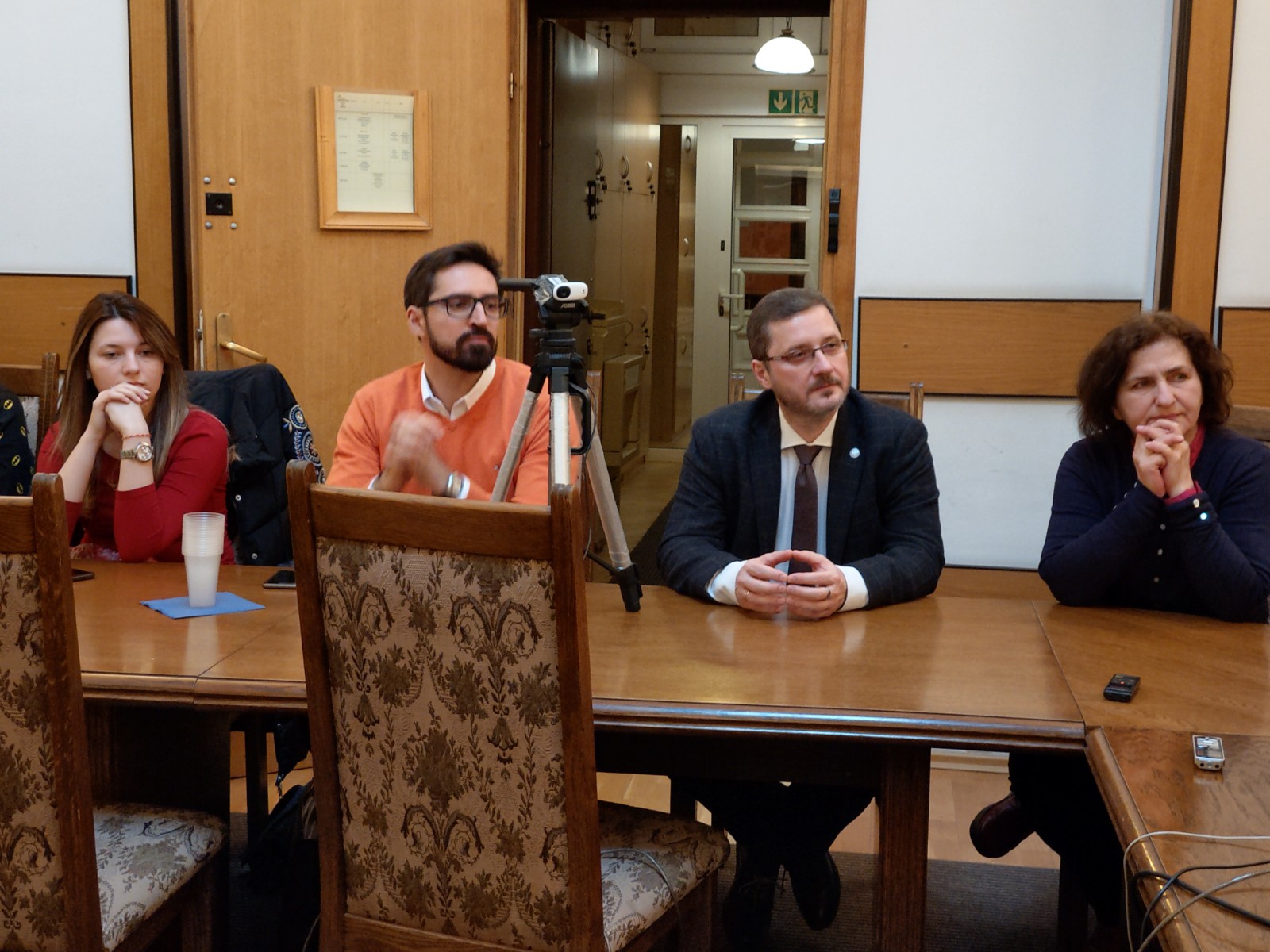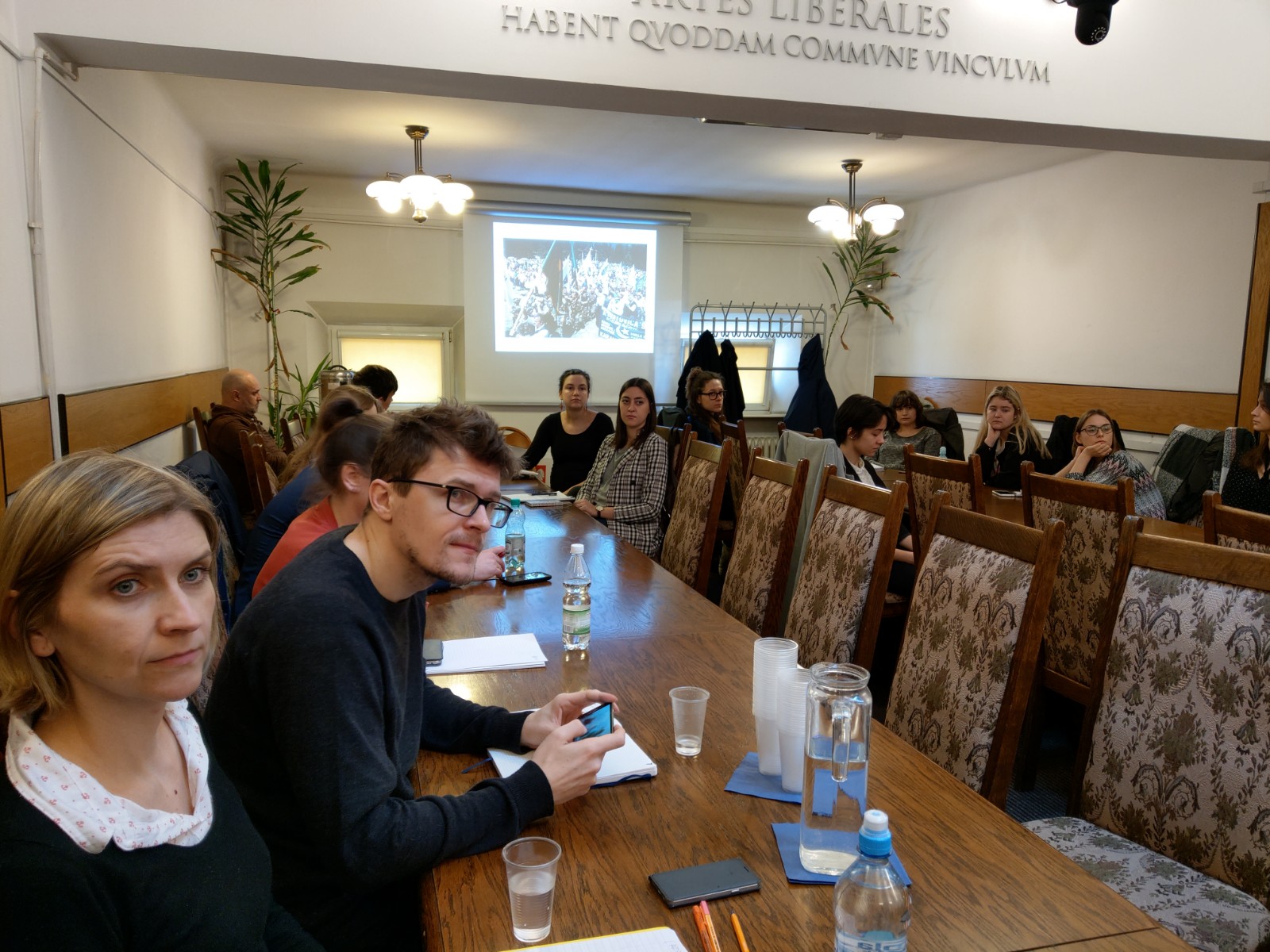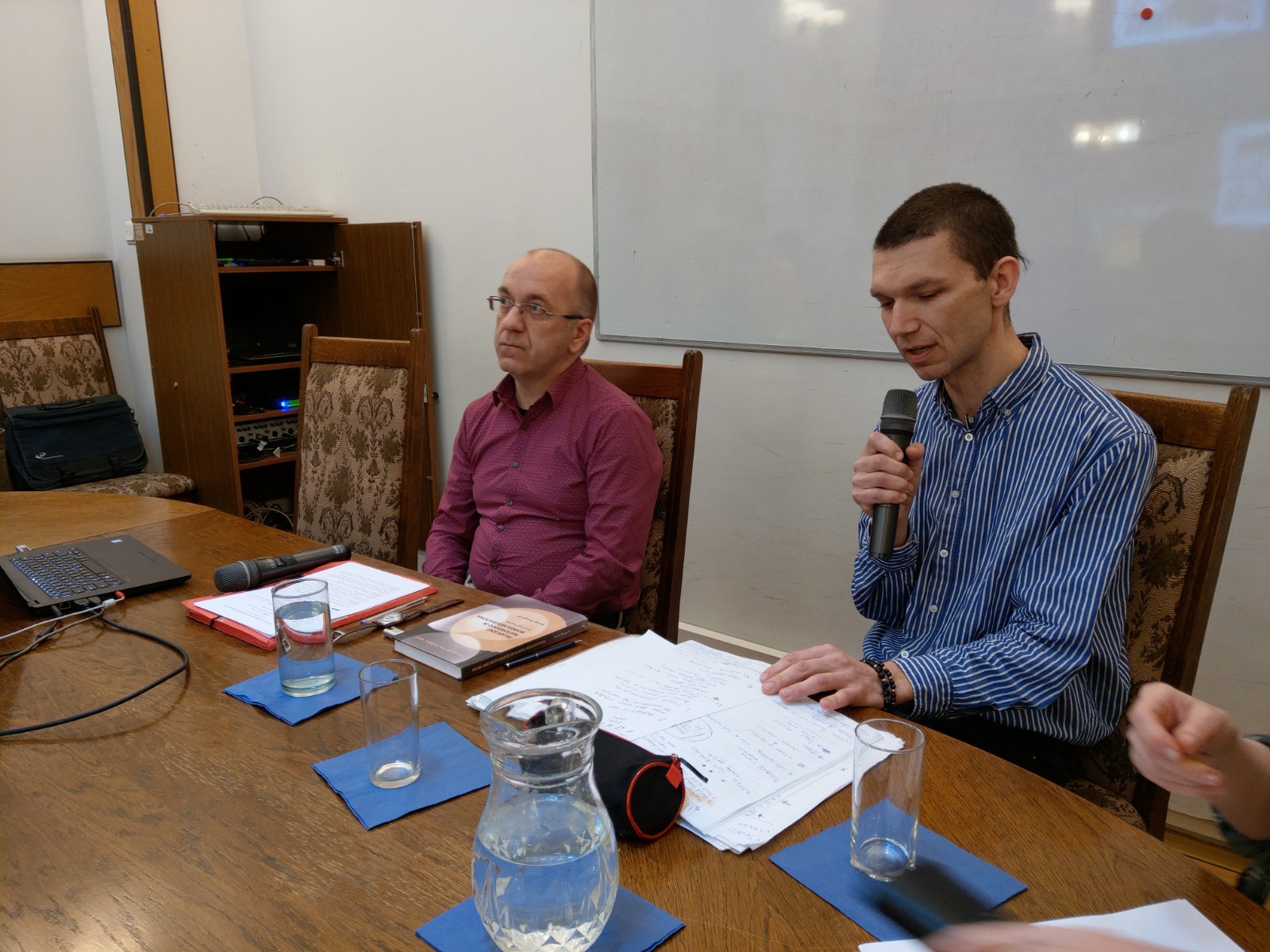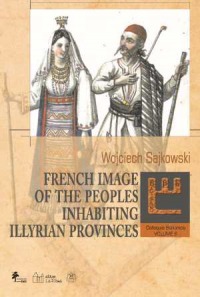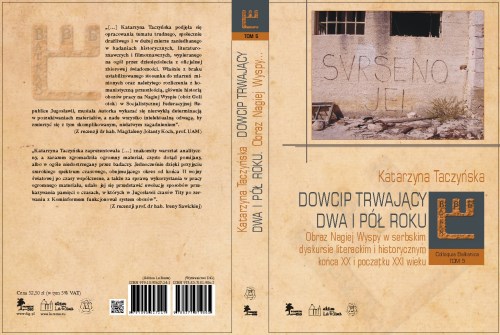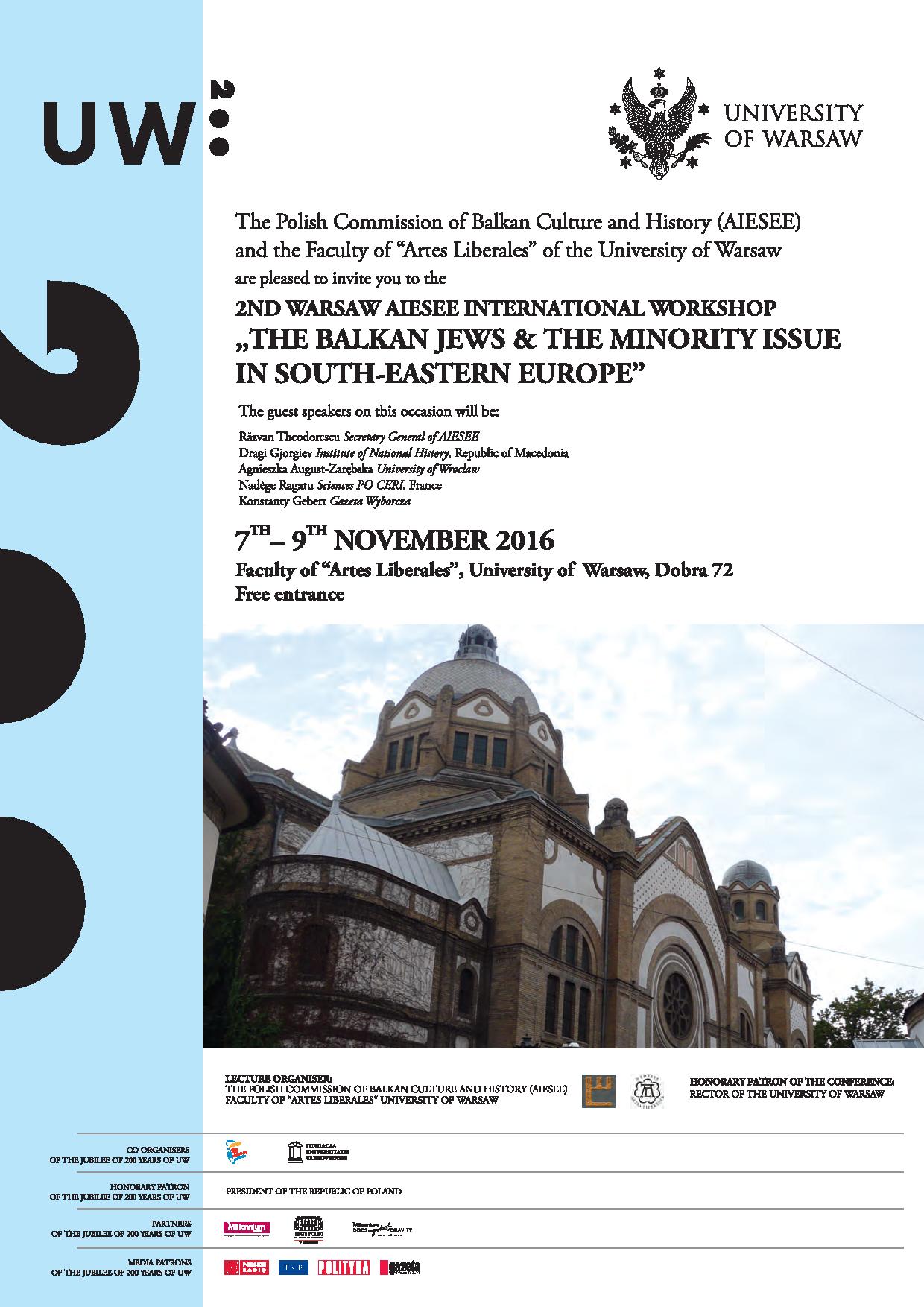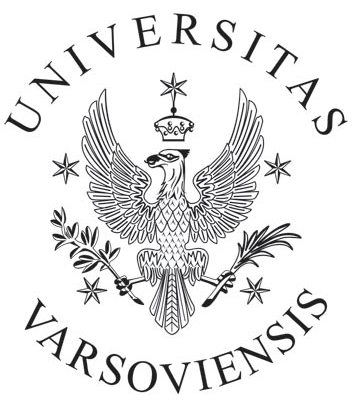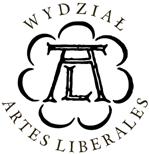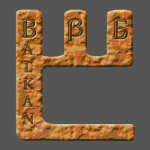The volume The Balkan Jews and the Minority Issue in South-Eastern Europe is the first academic publication in Poland (and the world) devoted entirely to the phenomenon of Balkan Jews. The work sets out to present the early and most recent history of Jews in the Balkans to a wide humanities, Polish, Jewish and global audience. Looking from the perspective of today’s changing Europe and the world, it certainly seems worth recording this segment of the history of the Jews, a people who have always been migrants.
In the Balkans there was created a multilevel network of mutual cultural relations including languages, tradition, religion, literature as well as identity. It seems that in this region, which for centuries functioned as a multiethnic and multireligious whole, there emerged a specific model of multiethnic relations based on a kind of balancing between preserving one’s own ethnic distinctness and integrating with the dominant culture. It is not just a double identity – characteristic for Diaspora Jews, but a kind of balancing between preserving his own ethnic Jewish distinctness and integrating with two (or more) other neighbouring cultures […].
The aim of the monograph is to consider the character of relations in the Balkans and the understanding of tolerance in mutual interethnic relations. However, the greatest asset of our volume is its topics, which boldly revise the ambiguous, mendacious discourse of official narratives in the Balkans.
TABLE OF CONTENTS
Introduction (Jolanta Sujecka) strona 11
Răzvan Theodorescu Herzl’s Dream: European Jewry between East and West strona 15
Visul lui Herzl. Evreimea europeană între Est și Vest strona 18
Poglądy Herzla. Europejskie żydowstwo między Wschodem i Zachodem strona 18
OTTOMAN JEWS, SEPHARDI JEWS, BALKAN JEWS
Dragi Ǵorgiev Non-Muslims in Ottoman Society: Ottoman Jews in the Balkans strona 19
Немуслиманите во Османлиската Империја: Османлиските Евреи на Балканот strona 33
Nie-muzułmanie w imperium osmańskim: osmańscy Żydzi na Bałkanach . strona 34
Benedetto Ligorio Connecting Cultures. Cross-cultural Trade Networks of Ragusan Sephardim in the 16th and 17th Centuries . strona 35
Unire le culture. Le reti di commercio interculturale dei sefarditi di Ragusa nel XVI e nel XVII secolo. strona . 46
Łączenie kultur. Międzykulturowe sieci handlowe Sefardyjczyków z Raguzy w XVI i XVII wieku strona 46
Wojciech Sajkowski The Image of the Balkan Jews in French Travelogues in the 19th Century . strona 47
Obraz Żydów bałkańskich we francuskich książkach podróżniczych z XIX wieku . strona . 56
Paweł Michalak The Jews and the So-Called Jewish Question in Yugoslavia During the Reign of King Aleksandar Karađorđević (1921–1934) According to the Newspaper Politika strona 57
Żydzi i tzw. kwestia żydowska w Jugosławii w okresie panowania króla Aleksandra Karađorđevicia (1921–1934) na łamach dziennika „Politika” . strona . 69
Bojan Mitrović Submergence Before Socialism? The Jews of Serbia and Serb and Yugoslav Nation-Building from Hajim Davičo (1854–1916) to David Albala (1886–1942) . strona . 71
Submergence (Uronjenost) pre socijalizma? Jevreji Srbije i stvaranje srpske i jugoslovenske nacije od Hajima Daviča (1854–1916) do Davida Albale (1886–1942) . strona. 85
Submergence (Zanurzenie) przed socjalizmem? Żydzi z Serbii a powstanie serbskiego i jugosłowiańskiego narodu od Hajima Daviča (1854–1916) do Davida Albali (1886–1942) . strona. 86
Irina Ognyanova Jewry-Related Discourse in Bulgaria in the Interwar Period . strona. 87
Евреите в България в периода между Първата и Втората световна война strona. 105
Żydzi w Bułgarii w okresie między pierwszą i drugą wojną światową . strona. 106
Pedro Bádenas de la Peña The Taboo on Collaboration and Indiff erence During the Holocaust in Greece strona. 107
El Tabú del Colaboracionismo y la Indiferencia Durante el Holocausto en Grecia strona 123
Tabu kolaboracji i obojętności w Grecji czasów Holokaustu strona 123
Amikam Nachmani Greeks, Jews, Greece, Israel: The 1940s Greek Civil War as a Microcosm strona 125
1949 :סמל ליחסים בין יוונים, יהודים, יוון, וישראל – 133 . . . . . . מלחמת האזרחים ביוון, 1946 Wojna domowa w Grecji (1946–1949): symbol relacji pomiędzy Grekami, Żydami, Grecją i Izraelem . strona 133
JEWISH CITY AND IDENTITY ISSUES
Andreas K. Bouroutis From Thriving Community to Minority: The Jewish Community of Thessaloniki and the Incorporation of the City into the Greek State . strona. 135
Από ευημερούσα κοινότητα σε μειονότητα: Η εβραϊκή κοινότητα της Θεσσαλονίκης και η ενσωμάτωση της πόλης στο ελληνικό κράτος . strona 146
Od kwitnącej społeczności do mniejszości: Żydzi saloniccy a włączenie Salonik do państwa greckiego . strona 148
Emanuela Costantini Compromise or Denial? Bucharest Jews in the Romanian Nation State . strona 149
Compromesso o rifi uto? Gli ebrei di Bucarest nello stato nazionale rumeno . strona . 160
Kompromis czy odrzucenie? Żydzi z Bukaresztu w rumuńskim państwie narodowym strona. 161
Tijana Zebić The Jewish Community in Pirot: Public and Religious Identity in the Balkan Ottoman Town from the Tanzimat Reform Period to the First World War . strona. . 163
Jevrejska zajednica u Pirotu: Javni i verski identitet u Osmansko- -Balkanskom gradu od tanzimatskih reformi do Prvog svetskog rata . strona 178
Społeczność żydowska w Pirocie: tożsamość publiczna i religijna w mieście osmańsko-bałkańskim od reform tanzimatu do pierwszej wojny światowej . strona . 179
LANGUAGE AND LITERATURE: GREEK, OTTOMAN, SEPHARDI, AND YUGOSLAV JEWS
Agnieszka August-Zarębska The Language of Sephardic Jews: History and Main Characteristics . strona 181
Język Żydów sefardyjskich — historia i charakterystyczne cechy . strona . 203
Aleksandra Twardowska The Status of Judeo-Spanish in Yugoslavia until 1941 . strona. 205
Status żydowsko-hiszpańskiego w Jugosławii do 1941 . strona. 218
Agata Grzybowska-Wiatrak Hecataeus of Abdera and the First Greek-Jewish Literary Encounters in the Hellenistic Period . strona 219
Hekatajos z Abdery i pierwsze literackie spotkania Greków z Żydami w okresie hellenistycznym . strona 230
Magdalena Matuszewska Jewish Sacred Poetry in the Ottoman Empire and an Unpublished Manuscript from the Collection of the Jewish Historical Institute in Warsaw . strona. 231
Żydowska poezja sakralna Imperium Osmańskiego a niepublikowany rękopis z kolekcji Żydowskiego Instytutu Historycznego w Warszawie . 236
WARS MEMORY AND IDENTITY
Krinka Vidaković-Petrov Jewish Identity in Yugoslavia Before and After the Holocaust . strona 237
Јеврејски идентитет у Југославији пре и после Холокауста . strona. 256
Tożsamość żydowska w Jugosławii przed Holokaustem i po nim . strona . 257
Katarzyna Taczyńska Counterpointing of Memory: The Image of World War II in the Diaries of Lea Salcberger and Ervin Salcberger . . strona. 259
Kontrapunkty pamięci: obraz drugiej wojny światowej w dziennikach Lei Salcberger i Ervina Salcbergera . strona. 272
Konstanty Gebert (Dawid Warszawski) Jews and Wars in the Balkans: Refl ections of an Onlooker strona 273
Wojny i Żydzi na Bałkanach — refl eksje obserwatora . strona. 284
Jonna Rock The Sephardim in Sarajevo and Their Refl ections on the Crises, Antisemitism and Islamization of Today . strona. 285
Sefarderna i Sarajevo och deras refl ektioner kring ekonomisk kris, antisemitism och islamisering av Bosnien idag . strona . 303
Żydzi sefardyjscy w Sarajewie i ich refl eksje wobec obecnych kryzysów, antysemityzmu i islamizacji . strona . 304
MIGRATION ISSUE AND ETHNIC POLICY
Shaban Sinani International Acts Facilitating the Emigration of Jews to Albania between the Two World Wars . strona 305
Disa akte ndërkombëtare që lehtësuan emigrimin e hebrenjve në Shqipëri në periudhën midis dy Luftërave Botërore . . strona . 321
Niektóre akty międzynarodowe ułatwiające emigrację Żydów do Albanii w okresie między dwiema wojnami światowymi . strona. 322
Bojan Aleksov Jewish Refugees in the Balkans: Entangled Perspectives on World War II and the Holocaust . strona. 327
Jevrejske izbeglice na Balkanu: Isprepletane perspektive na Drugi svetski rat i Holokaust (nacrt istraživanja) . strona. 338
Żydowscy uciekinierzy na Bałkanach: splecione perspektywy oglądu drugiej wojny światowej i Holokaustu (zarys problematyki badań) strona. 339
Alexander Novik The Jewish Population in Albania and Kosovo in the 20th Century : Historical Presence and Modern Situation . strona 341
Евреи в Албании и Косово в ХХ в.: историческое присутствие и современная ситуация . strona . 356
Żydzi w Albanii i Kosowie w XX wieku — w przeszłości i dziś . . strona 357
Kyrillos Nikolaou A Comparative Study on Migration Issues in the Balkan Context of the Ottoman Empire : The Cases of Ottoman Greeks and Ottoman Jews . strona . 359
Συγκριτική μελέτη του φαινομένου της μετανάστευσης στο βαλκανικό πλαίσιο της Οθωμανικής Αυτοκρατορίας: Οι περιπτώσεις των Ελλήνων και Εβραίων υπό οθωμανική κυριαρχία . . . strona 368
Studium porównawcze migracji na Bałkanach w Imperium Otomańskim: przypadki Greków oraz Żydów za panowania Osmanów . . strona 369
MINORITY ISSUE AND STATE POLICY IN THE POST-COMUNISTIC ERA
Maja Savić-Bojanić Examining the Formal Political Participation of Jews in Post-Dayton
Formalno Političko Učešće Jevreja u Post-Dejtonovskoj Bosni i Hercegovini: o Vrstama Učesnika u Politici . strona. 395
Formalne Uczestnictwo Polityczne Żydów w Post-Daytońskiej Bośni i Hercegowinie: o Rodzajach Uczestników w Polityce . strona 396
Yorgos Christidis The Jewish Community in Post-Communist Bulgaria: State Policy and Community Evolution strona . 399
Η εβραϊκή κοινότητα στη μετά-κομμουνιστική Βουλγαρία: Κρατική πολιτική και κοινοτική εξέλιξη . strona . 411
Społeczność żydowska w postkomunistycznej Bułgarii — Polityka państwa a rozwój społeczności . strona . 412
Mirella Korzeniewska-Wiszniewska Elements of Slovenia’s Ethnic Policy in the Face of European Regulations on Minorities . strona 413
Elementy słoweńskiej polityki etnicznej w świetle europejskiej regulacji strona. 420
Natalia Golant Mutual Infl uences in the Family Rites of Moldavian Jews and Their Neighbors (According to Materials from Fieldwork in the Republic of Moldova) . strona. . 421
Взаимовлияния в семейной обрядности молдавских евреев и их соседей (по материалам полевых исследований в Республике Молдова) . strona. . . . 426
Wzajemne wpływy mołdawskich Żydów i ich sąsiadów w sferze obrzędowości rodzinnej (na podstawie badań terenowych w Republice Mołdawskiej) . strona. 427
Dzmitry Shavialiou Is There a Jewish Revival in Moldova? . strona 429
Есть ли еврейское возрождение в Молдове? . strona 441
Czy w Mołdawii mamy do czynienia z odrodzeniem żydowskim? . strona 442
Index of names . . strona . 443

